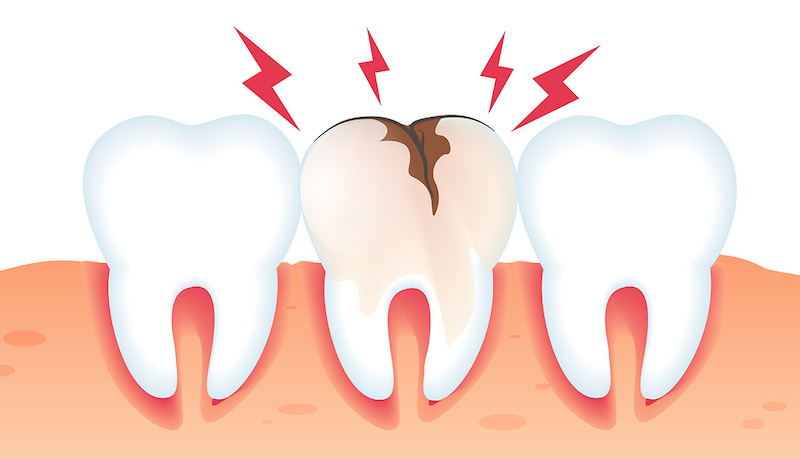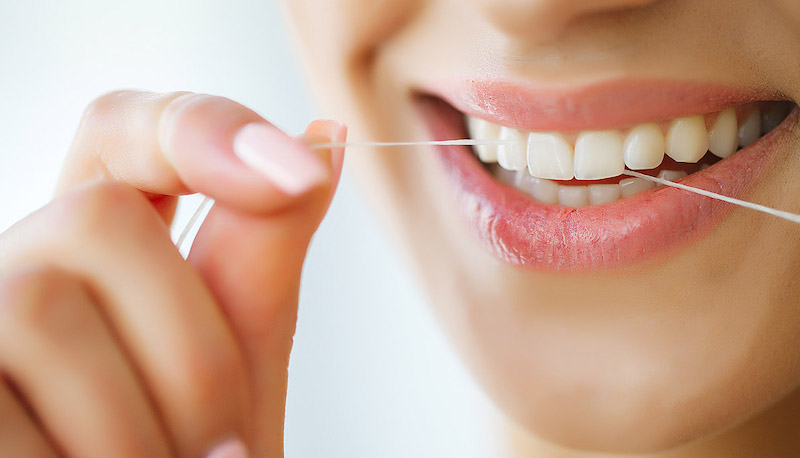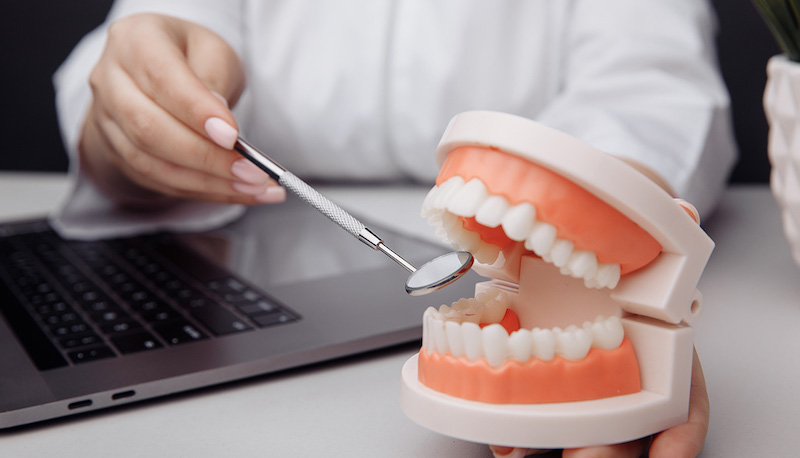From the moment your adult teeth started to appear, you’ve been told to avoid cavities that could cause you to lose your teeth. Yet, untreated cavities (also called tooth decay or caries) in permanent teeth remains the most common health condition in the world. We believe that it’s because many people are not told how cavities are formed and the easiest ways to prevent these cavities from forming.
All you need to know about tooth cavities

What are cavities?
Cavities in the tooth are the decay, holes and any other damage that develop on the hard surface of your tooth, the dental enamel. Since the enamel is not designed to heal and repair itself, the damage is permanent — unless a dentist treats, repairs and/or restores the tooth.
The sooner the tooth cavity treatment the better, because cavities eventually cause mouth diseases, unbearable pain and tooth loss if left untreated.
What causes cavities in permanent teeth
The first stage is plaque formation, which many people often forget that it’s a sticky film of bacteria, dead cells, and food debris that attack the sugars and starches that come in contact with your teeth. This attack creates an acid that wears the tooth enamel. If you don’t regularly brush and floss your teeth to prevent plaque from building up, it eventually hardens on the tooth, causing small holes in the enamel.

Without tooth cavity treatment, the enamel wears off and the cavity grows larger. Now the other layers of your tooth are exposed to attacks and the nerves and blood vessels in your tooth become affected. If you’ve yet to suffer any pain since the enamel became damaged, you will definitely be feeling pain now.
Once again, if the damage is left untreated, it can spread to the surrounding tissues and into the roots, gums and jawbone. Only a dentist can assist, and the treatment will depend on the severity and depth of the cavity, how badly the surrounding area has been affected and whether the tooth can be saved at all.
How to tell whether you have cavities in your teeth
Cavities can form on any part of the tooth enamel, including between the teeth, therefore making them invisible unless a dentist conducts some dental X-rays to detect even the tiniest cavity or hairline tooth fracture.

However, here are the major symptoms that often indicate a presence of cavities:
- Increased sensitivity to cool or warm foods and drinks
- Mild to severe pain in and around the damaged tooth
- Brownish or black stains have appeared on the tooth
- Feeling discomfort when eating hard, crunchy and grainy foods
- Being able to feel the hole (possibly needs dental filling treatment)
If you’re experiencing any of these symptoms, we highly recommend that you visit your dentist as soon as possible to avoid the issue from worsening, which could cause you to lose the tooth.
How to prevent cavities in permanent teeth
Fortunately, cavities can be prevented through good habits, including:

1. Brush and floss
We recommend brushing at least twice a day, ideally after breakfast and before bed, and for a minimum of 2 minutes each time, while making sure you brush every tooth, and your tongue and gums. Plus consider flossing at least once a day and washing using some mouthwash for added protection against cavities and gum disease.
2. Follow a healthy diet
Start by looking at your eating and drinking habits. What can you eliminate that may be contributing to plaque formation? Are you consuming any food and drinks that are loaded with sugar and carbohydrates? Can you replace them with fresh fruits and vegetables? Another tip is to drink water after consuming sugary foods and drinks. This will help flush the bacteria that causes plaque.
3. Avoid hard snacks
There are many snacks that can chip or crack your teeth. Jawbreakers and anything hard, such as hard nuts, candy, granola bars and nutbars are just some of the culprits. Remember, the older you are, the higher the risk of losing your teeth. That’s because your teeth may be getting more fragile. Is there a safer way you can consume the same ingredients? For example, buy nuts that’s already been cut or shaved into smaller or thinner pieces. Or try nut pastes and butters.

4. Schedule regular dental appointments
To further help prevent dental cavities, book a preventive dental care visit every six months. One for a professional hygienist to remove plaque and tartar build-up, the other to allow your dentist to exam your teeth for any early signs of decay that may have already started, especially if you’re still at the stage where you’re not yet feeling any pain. Your dentist can offer the appropriate preventive tips or solutions for treating cavities, such as a dental filling treatment.
5. Teach your children good dental habits
If your child is unable to look after their teeth properly, you can supervise and help them exercise the same good habits (brush with a soft-bristled toothbrush and child-friendly toothpaste, floss once they turn 2, eat healthy foods, drink healthy beverages, and visit the dentist regularly in case they need a tooth cavity treatment).
Our articles are not intended to be a substitute for professional dental advice, diagnosis or treatment with your dentist, dental hygienist or other medical professional. We recommend to always contact our professional team if you or the person you care for has any concerns about their oral health.
